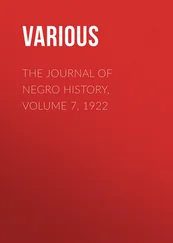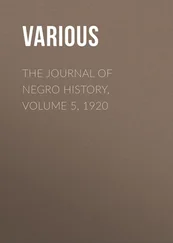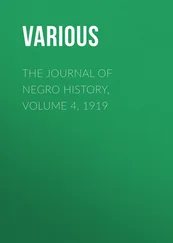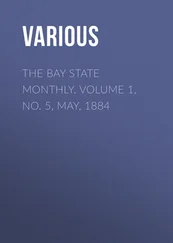Various - The Bay State Monthly, Volume 3, No. 2
Здесь есть возможность читать онлайн «Various - The Bay State Monthly, Volume 3, No. 2» — ознакомительный отрывок электронной книги совершенно бесплатно, а после прочтения отрывка купить полную версию. В некоторых случаях можно слушать аудио, скачать через торрент в формате fb2 и присутствует краткое содержание. Жанр: foreign_antique, periodic, foreign_edu, на английском языке. Описание произведения, (предисловие) а так же отзывы посетителей доступны на портале библиотеки ЛибКат.
- Название:The Bay State Monthly, Volume 3, No. 2
- Автор:
- Жанр:
- Год:неизвестен
- ISBN:нет данных
- Рейтинг книги:3 / 5. Голосов: 1
-
Избранное:Добавить в избранное
- Отзывы:
-
Ваша оценка:
- 60
- 1
- 2
- 3
- 4
- 5
The Bay State Monthly, Volume 3, No. 2: краткое содержание, описание и аннотация
Предлагаем к чтению аннотацию, описание, краткое содержание или предисловие (зависит от того, что написал сам автор книги «The Bay State Monthly, Volume 3, No. 2»). Если вы не нашли необходимую информацию о книге — напишите в комментариях, мы постараемся отыскать её.
The Bay State Monthly, Volume 3, No. 2 — читать онлайн ознакомительный отрывок
Ниже представлен текст книги, разбитый по страницам. Система сохранения места последней прочитанной страницы, позволяет с удобством читать онлайн бесплатно книгу «The Bay State Monthly, Volume 3, No. 2», без необходимости каждый раз заново искать на чём Вы остановились. Поставьте закладку, и сможете в любой момент перейти на страницу, на которой закончили чтение.
Интервал:
Закладка:
In 1830, stimulated by a desire to perfect his knowledge of the business and secure any improvements in methods or machinery to be found in England, Mr. David sailed for Liverpool.
As might be anticipated, in subordination to this main interest Mr. David sought to enlarge his knowledge of English men and English institutions. He became familiar with their commercial habits, visiting public buildings and places of historical importance, so that fifty years afterwards he could speak of parks, streets, and sections of the city of London in which any recent event occured as if he had been an eye witness. He was present at the opening of the Liverpool and Manchester Railway when Lord Huskinson was killed, being crushed by the wheels of the locomotive. At this time he saw the Duke of Wellington, with other distinguished men, members of Parliament, and nobility. On his return to America, he brought a machine for winding whip-stocks, the first ever used in this country. The machine was subsequently duplicated, and proved a valuable accession to the trade. He also introduced some new materials, and enlarged the variety of fashions. In other respects the manufacture was unchanged. The prosperity of the firm had no serious checks; they had agencies for the sale of goods in Boston, New York, New Orleans, and large orders came from other cities. They bought materials for cash, so that when the commercial crash of 1837 carried disaster to multitudes, they survived. "We did not fail," said Mr. David, "for we owed no one anything, but we lost nearly all we had by the failure of others." The result of this experiment was a contraction of the system of credits and selling goods for cash or by guaranteed commissions.
For many years, the manufacture of whips was the most important business in Amherst. It gave employment to several persons and furnished the means of support to ten or twelve families. The purchases of ivory, whalebone, and other raw material, were usually made from first hands and in such quantities as often gave the firm control of the market; while in the style and workmanship of their handmade whips, they had few competitors.
With the enlargement of their resources, Messrs. Melendy & David became interested in other enterprises. They held real estate and buildings. They bought shares in the railways which were finding their location in New Hampshire. Mr. David belonged to the Board of Directors that laid out and constructed the Northern Railroad. Subsequently this property was sold, and with the proceeds they joined in new undertakings at the West, which subjected the firm to very serious losses. The business was entrusted to others, and unforeseen difficulties arose, attended by material disasters, which no precaution will certainly avert; and failing in the support which was supposed sure, defeat ensued. But these reverses were not without their uses, as subsequent events clearly demonstrated. Accepting the conditions, which were most disheartening, Mr. David and his partner addressed themselves to the work of securing their creditors and restoring their fortunes. It was a long and weary struggle, demanding persistent application, economy, and careful management. They were subjected to painful imputations and occasional rebuffs, but they also found sympathy, and at the end of nine years, in which they sought no relief from the usual claims of social and religious obligations, every debt was discharged and their real estate freed from all incumbrance. The example was most commendable, illustrating the sterling virtue and high determination of the men in circumstances where weak minds would have faltered, and unconscientious persons would have evaded payment.
Going back in this history to the period of their increasing business, we shall find that a strong religious element controlled the lives of both of these men. In the years from 1830 to 1836, which were so memorable in large accessions to the Churches of New Hampshire, the power of the gospel was manifested in Amherst, and these men with many others were persuaded to act upon their religious convictions and avow their faith in Christ. Mr. Melendy united with the Congregational Church in 1832, and Mr. David and several of his workmen followed the example in 1835; the character of all these men for integrity and steady habits had been good, but from this date a higher standard of conduct prevailed. A new direction was given to their thoughts, and the tone of the establishment was elevated by superior motives. While resident in Boston. Mr. David had been attentive to the vigorous doctrinal discussion which divided the community sixty years ago. He had listened approvingly to the preaching of Wayland and Beecher, then in the fulness of their strength. He was persuaded that the doctrines to which these divines gave such prominence were in harmony with the teachings of the New Testament; accordingly, when Mr. David accepted the Evangelical system of faith as the ground of his own hope of God's favor, he acted intelligently. He acknowledged his dependence on the grace of God in Christ Jesus. He recognized the sacredness of the Christian calling. He became a student of the Scriptures, entered the Sabbath School as a teacher, and assumed the responsibilities of sustaining the ordinances of public and local religious worship. In 1846, he was elected deacon in the Congregational Church. He accepted the office with some reluctance, being distrustful of himself, but his counsel and service were of great value to the brotherhood. Intent on improving himself in all the qualities of Christian manhood, he was observant of the great movements of society, and deeply interested in the new and enlarged applications of Chistianity. He followed the operations of the American Board, as new fields opened to the missionaries of the Cross; keeping informed as to the changing phases of Evangelical effort in this and in foreign lands. In this particular he manifested the same accuracy which marked his knowledge of current affairs. He was familiar with the history of the United States and Great Britain, and having a lively admiration of learned men, statesmen, scholars, and divines, he was a reader of biographies. While emulating the excellence which he admired, these stores of information were employed to enliven conversation and to furnish material for public discourses. In the gathering of the people, whether for secular or religious purposes, he was often called upon to speak. His remarks were received with attention, and had weight with his audience, because they embodied the fruits of his study and reflection.
In the meetings of the Church for conference and prayer, he was often very helpful. He had too much reverence for the place and object of the assembly, to indulge in crude and repetitious utterances. He prepared himself for the duty, by recalling the lessons of his own experience or citing illustrations from the wide stores of his reading. His words were well chosen, and his thoughts seldom common-place. In the exigencies of the missionary cause, or on some occasion of special peril to the truth he would bring forward an instance of signal deliverance from similar trial, in the previous history of the Church, or in the lives of her servants. There were those, who might speak with more fluency, or employ a more impassioned manner, but no one spoke more to edification. His prayers also were marked by the same evident thoughtfulness and spirituality. He was not hasty to offer his desires before God. You felt, in following his petitions, that he had a message, and his voice would often be tremulous with emotion as he made supplication in behalf of the sick or the sorrowful; as he prayed for the youth of the congregation, or interceded in behalf of the Church and the country. As an officer of the Church, he was considerate of the feelings and wants of his brethren; visiting the sick, searching out the poor, and practicing a generous hospitality. Ministers of all denominations were welcome to his house, and among his chosen friends there were none held in higher esteem than the ministers whom he loved for their works' sake.
Читать дальшеИнтервал:
Закладка:
Похожие книги на «The Bay State Monthly, Volume 3, No. 2»
Представляем Вашему вниманию похожие книги на «The Bay State Monthly, Volume 3, No. 2» списком для выбора. Мы отобрали схожую по названию и смыслу литературу в надежде предоставить читателям больше вариантов отыскать новые, интересные, ещё непрочитанные произведения.
Обсуждение, отзывы о книге «The Bay State Monthly, Volume 3, No. 2» и просто собственные мнения читателей. Оставьте ваши комментарии, напишите, что Вы думаете о произведении, его смысле или главных героях. Укажите что конкретно понравилось, а что нет, и почему Вы так считаете.












